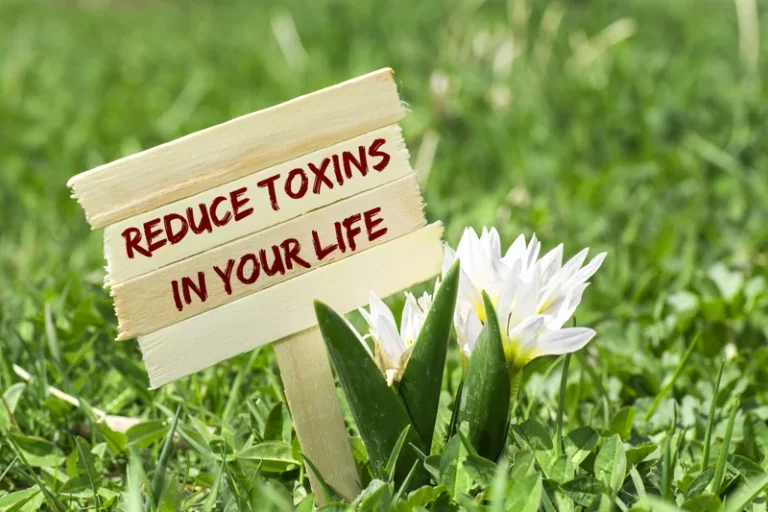
It’s always important to drink responsibly and be aware of your limits. If you find yourself frequently needing to detox from alcohol, it may be a sign to reevaluate your drinking habits. We offer comprehensive alcohol addiction treatment at Still Detox to help https://ecosoberhouse.com/ you become sober.

Concerned About Your Drinking? Take the Alcohol Addiction Test
A diet that includes nutrient-dense foods and helps regulate blood sugar can improve overall enzyme function, aiding your body’s processing of alcohol. Food also plays a role in alcohol absorption; drinking on an empty stomach sends alcohol directly into the small intestine for rapid absorption, intensifying its effects. Eating before or while drinking can slow this absorption, helping to moderate blood alcohol levels. Chronic and excessive alcohol consumption can damage your liver and other organs and potentially cause Sober living house long-term health problems. If you are concerned about your drinking habits or are struggling with alcohol addiction, seek the help of a healthcare professional or addiction specialist. Incorporating regular exercise into your routine not only aids in flushing out alcohol but also improves overall well-being.
We Level Up Treatment Centers
- The amount of fat versus lean muscle someone has can influence their volume of distribution, which could explain why men and women show different responses to alcohol.
- What’s more is that alcohol is packed with sugar, and some drinks such as beer, wine, and champagne are fermented as well.
- Mindful drinking is about being aware of why and how much alcohol you consume.
- ChoicePoint is offering 30 day drug rehab near you in NJ and 7 days program (available on weekends as well).
- However, it’s primarily the liver that plays a crucial role in breaking down alcohol.
- Water does help flush out alcohol, but only after the liver has metabolized it.
- Once you ingest alcohol, it passes through the portal vein to your liver and then to your heart via the hepatic vein.
To eliminate these damaging behaviors, alcohol addicts need to stabilize their dependence and stay sober for a long time by taking recommended medicine. If you have concerns about alcohol consumption or its effects on your health, it’s advisable to seek professional guidance. Schedule an appointment or call us and a Ria Health team member can help. Remember that everyone’s body is different, and the rate at which alcohol is metabolized can vary. It’s essential to listen to your body, and prioritize your health and safety during the recovery process. While it’s not possible to accelerate the body’s natural process of metabolizing and eliminating alcohol, there are steps you can take to support and optimize this process.
- If you or a loved one are seeking support in overcoming alcohol addiction, contact our team today to learn more about how we can help.
- Alcohol acts as a diuretic, leading to electrolyte imbalances and dehydration, which can exacerbate hangover symptoms like headaches.
- But since you want to flush out alcohol from your body fast, try doubling that amount.
- Alternatively, you may seek support from a professional therapist if you’re already struggling with substance addiction to speed up your recovery from alcoholism.
- You need to drink no specific amount of water to remove alcohol from your system.
- Alcohol impacts our sleep, relationships, weight, risk for serious chronic conditions and more.
- For most individuals, a baseline of at least 64 ounces of water daily is essential.
Mindful Drinking: A Harm Reduction Strategy
These programs accentuate building a support network, forwarding self-awareness, and equipping members with coping mechanisms to handle triggers or cravings effectively. For those looking to reduce or quit alcohol, establishing new habits and routines is crucial. Drinking affects both physical and mental health, and giving it up can offer numerous benefits. This guide outlines practical tips and strategies to help you embark on the journey to sobriety, ensuring you make informed decisions about your health and lifestyle. Remember that these strategies are meant to complement responsible drinking habits and should not be used as a way to justify excessive alcohol consumption.
Incorporating alcohol-free days into the week not only fosters self-reflection, it also provides clarity about the dependency on alcohol. Medically assisted detox is generally considered safer and more effective than quitting abruptly, especially for individuals with severe dependencies. best way to clear alcohol out of your system Medical supervision and interventions can help manage withdrawal symptoms, reducing risks and increasing the likelihood of a successful detox.

This is why if any, many, or all of these symptoms are present, it is important to seek professional help sooner than later. Doing so could mean the difference between short-term side effects and long-term consequences. Many people also struggle with co-occurring disorders of AUD and mental health. This can make getting proper help even more difficult as one issue often overshadows the other and can lead to a lack of diagnosis. This is also why it can be so important to be able to recognize the signs and symptoms of AUD.


It can mean more time for your other interests, and even new interests. More time to meet new people, catch up with old friends and try new things. In order to change your drinking habits, your first step is to take a close look at your current behaviors and find patterns. Hydration, eating balanced meals, and engaging in physical activity can speed up the process of eliminating alcohol from your system. Factors like body weight, gender, and genetics influence how quickly alcohol is processed.
Participating in group therapy or individual counseling allows deeper exploration and shared experiences. Discover what a dual diagnosis treatment program entails and how it supports recovery from co-occurring disorders. Discover why grateful people don’t relapse and how gratitude can be a powerful tool in recovery. Explore if addiction is genetic and how this knowledge can guide treatment and prevention strategies. ‘ Understand its principles, effectiveness, and journey to lasting sobriety. Decode the common signs of cocaine use, understand its health impacts, and explore treatment options.
- Continuing with therapy at our network strengthens your support system and makes it less likely that you’ll relapse, allowing you to work on your liver health and overall well-being.
- There is no way of speeding up alcohol metabolism in the body overnight.
- In the United States, “one drink” equates to about 12 ounces of beer or 5 ounces of wine (or about 14 grams of ethanol), according to the National Institute on Alcohol Abuse and Alcoholism.
Your memory won’t be as sharp, and it’ll be more difficult to focus. You may also become less coordinated, and your speech may begin to slow down. You cannot flush alcohol out of your system or lower your BAC faster, but you can practice self-care to support recovery after drinking.




